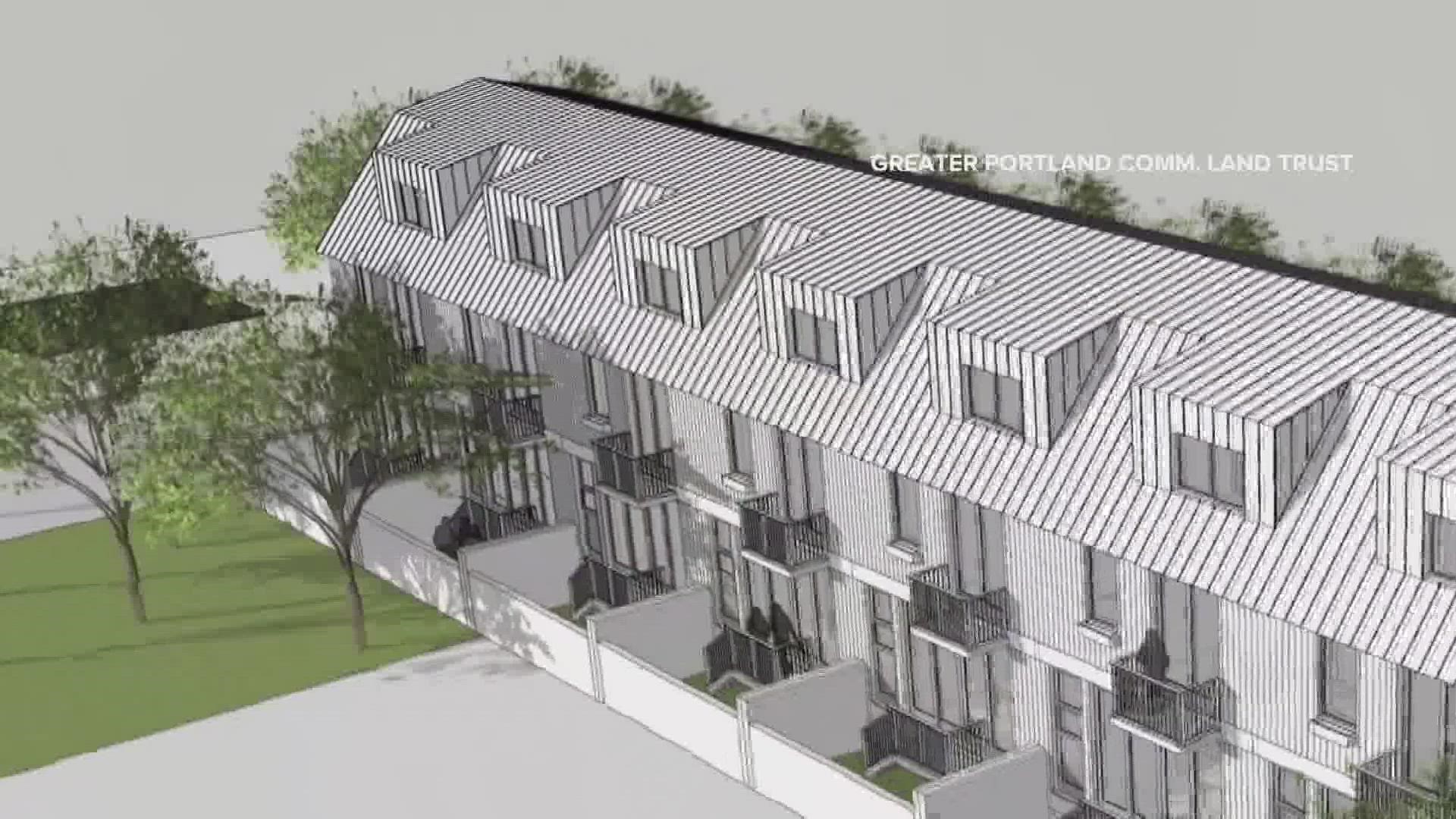PORTLAND, Maine — A new building project aims to break the mold of affordable housing.
This week, the Greater Portland Land Trust was chosen to build a 16-unit building at 21 Randall St. in Portland’s Back Cove neighborhood.
The developers lauded the location as they showed NEWS CENTER Maine the property on a dreary December afternoon. But excitement over things beyond a scenic view cut through the freezing rain.
It’s just a wooded lot for now, but Scott Vonnegut and Tim Wells from the trust are developing the building to sell, not rent, to families.
“To be able to not have to pay rent, but to pay a mortgage where they can have ownership of their home and build wealth and have a real sense of being in a neighborhood and part of a community,” Vonnegut explained.
This homebuying method will be aimed at helping families who are working and make between 60-120% of the region’s median income. According to the US Census Bureau, the median household income in Cumberland County in 2019— the most recent data on record—was $73,072.
Portland’s Acting Director of Housing and Economic Development Department Mary Davis, along with Wells, called this group of people the “missing middle.”
“They’re working. They make money, but they’re, sort of, priced out of Portland,” Wells said. “They can’t afford to get in other affordable housing projects because they make too much money, but they can’t afford to live in Portland.”
Wells also said each unit would be sold between 40-50% below market value.
The homes will also be built to “passive house” standards—some of the most energy-efficient construction in the world. Passive houses are currently more expensive to build than traditional homes.
How, then, is this plan possible?
Wells and Vonnegut said they’ve received federal and state subsidies for the project, and the trust is not designed to turn a profit.
As part of the sale, homeowners will lease from the trust, the land on which, the houses stand. Wells said as part of the land trust system, the residents themselves will have a say in the lease price point and that this will be done to ensure the homes remain in the trust.
Owners can improve the value of their homes, but if they’re sold, the homes will also fetch below-market prices. It will be commanded in their property deeds.
“These homes will stay affordable forever,” he said.
Davis said her department is excited about this new form of affordable housing and that she had never before seen a plan like it come across her desk.
Two years out from planned construction, Vonnegut said more than 20 people had applied for a chance to buy a unit in the property.

